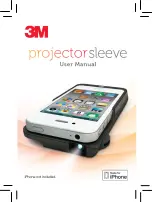
Reference
51
Denial of Service
- A cellular carrier may deny service
temporarily or terminate service for violation of any
governmental regulations or of its tariff.
Driving
- Your
MicroTAC phone is considered a cellular
telephone. Some jurisdictions prohibit your using a
cellular telephone while driving a vehicle. Even if your
jurisdiction does not have such a law, we strongly suggest
that, for safety reasons, the driver use extreme caution
when operating the
MicroTAC phone while the vehicle is
in motion (see “
Driving
” on page vii).
Consumer Responsibilities
- Remember that the wireline
and radio regulations with respect to harassing calls, false
distress calls, obscene language, etc., apply to cellular
phone usage.
Privacy
- As a telephone user, you have come to assume a
certain standard of privacy when you place or receive a
telephone call via traditional wireline systems. However,
because
MicroTAC phones utilize radio transmissions to
effect calls, the same standard cannot always be assured.
While it is unlawful for any unauthorized person to divulge or
use any information obtained from intercepting or ‘listening
in on’ conversations intended for others, you should not
assume that your conversation is completely secure.
Commercially available scanning equipment can permit a
third party to monitor the radio channels used for
MicroTAC
phone calls.
Interference
- No person shall interfere with or cause
interference to any radio communication or signal.
Equipment Modifications
- The U.S. Federal
Communications Commission has type-approved the
model of
MicroTAC phone which you have purchased, and
both have allocated a specific frequency range for cellular
service. No changes or adjustments are to be made to your
MicroTAC phone.
MicroTAC_Book Page 59 Thursday, October 16, 1997 1:30 PM
Black spot 45.0
°
169.71 LPI
















































